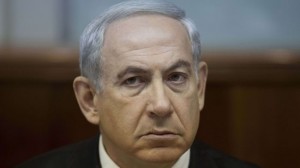 TEHRAN, Nov. 18 (MNA) – Yaakov Amidror, Prime Minister Benjamin Netanyahu’s former national security adviser, said on Sunday that Israel can stop Iran’s nuclear program militarily and can do it on its own.
TEHRAN, Nov. 18 (MNA) – Yaakov Amidror, Prime Minister Benjamin Netanyahu’s former national security adviser, said on Sunday that Israel can stop Iran’s nuclear program militarily and can do it on its own.
Amidror said the Israeli Air Force has been conducting very long-range flight, all around the world in preparation for a potential strike on Iran, which could set back its nuclear program. Netanyahu’s former national security adviser said that there was “no question” the prime minister would make the unilateral decision to use military force should it become necessary.
“We don’t need permission from anyone because we are an independent state, we have our own sovereignty. If Israel is in a position in which Israel must defend itself, Israel will do it.”
Amidror’s statements came just as world powers are set to resume nuclear talks with Iran in Geneva on Wednesday which, according to reports, are expected to lead to a deal - a deal vehemently opposed by Netanyahu, who has spoken relentlessly against the agreement that would ease some sanctions while still leaving Iran with uranium-enrichment capabilities, as it was emerging last weekend.
The prime minister has been increasingly vocal in recent days about his opposition to the potential deal, saying he utterly rejects the brewing agreement. His government has been lobbying American allies in Congress to keep up sanctions.
“It is clear that this agreement is good only for Iran, and bad for the world,” Netanyahu said Sunday at a press conference with visiting French President Francois Hollande, who is also against the deal with Iran in its present terms. “The choice today is not between a bad deal or war,” he stressed; on the contrary, he asserted, with each passing day Iran is under economic pressure that grows and grows.
In last week’s talks in Geneva between Iran and the US, Russia, China, France, Britain and Germany. Paris’s tough position on Iran was said to have prevented the global powers from signing an interim agreement with Tehran, one that would have included limited sanctions relief in return for a partial freeze of the country’s nuclear program.
“With patience and determination, you can get a good deal,” Netanyahu told Hollande. “This means maintaining pressure and increasing it, achieving a deal that would peacefully dismantle Iran’s military nuclear program, and would cause them to dismantle the centrifuges and plutonium-production heavy water reactor.”
Over the past two weeks, Netanyahu and other senior officials have openly sparred with the US over the emerging Iran deal.
Earlier on Sunday, CNN broadcast an interview with the prime minister in which he acknowledged “differences of opinion” with the Obama administration over the way to best thwart Iran’s nuclear weapons ambitions and over the terms offered by the P5+1 nations. Netanyahu said “the best of friends” can have differences, and emphasized his conviction that the Iranian program poses an existential threat to Israel.
Netanyahu restated the government’s opposition to Iran maintaining a heavy water reactor (at Arak) and its maintenance of centrifuges that could be used to enrich uranium even to low levels. The Geneva offer reportedly allows Iran to continue enriching uranium to 3.5%. The Iranian regime has contended that it seeks nuclear energy for domestic programs, not for the development of nuclear weapons.
By Mehr News Agency
The Iran Project is not responsible for the content of quoted articles.

 QR code
QR code